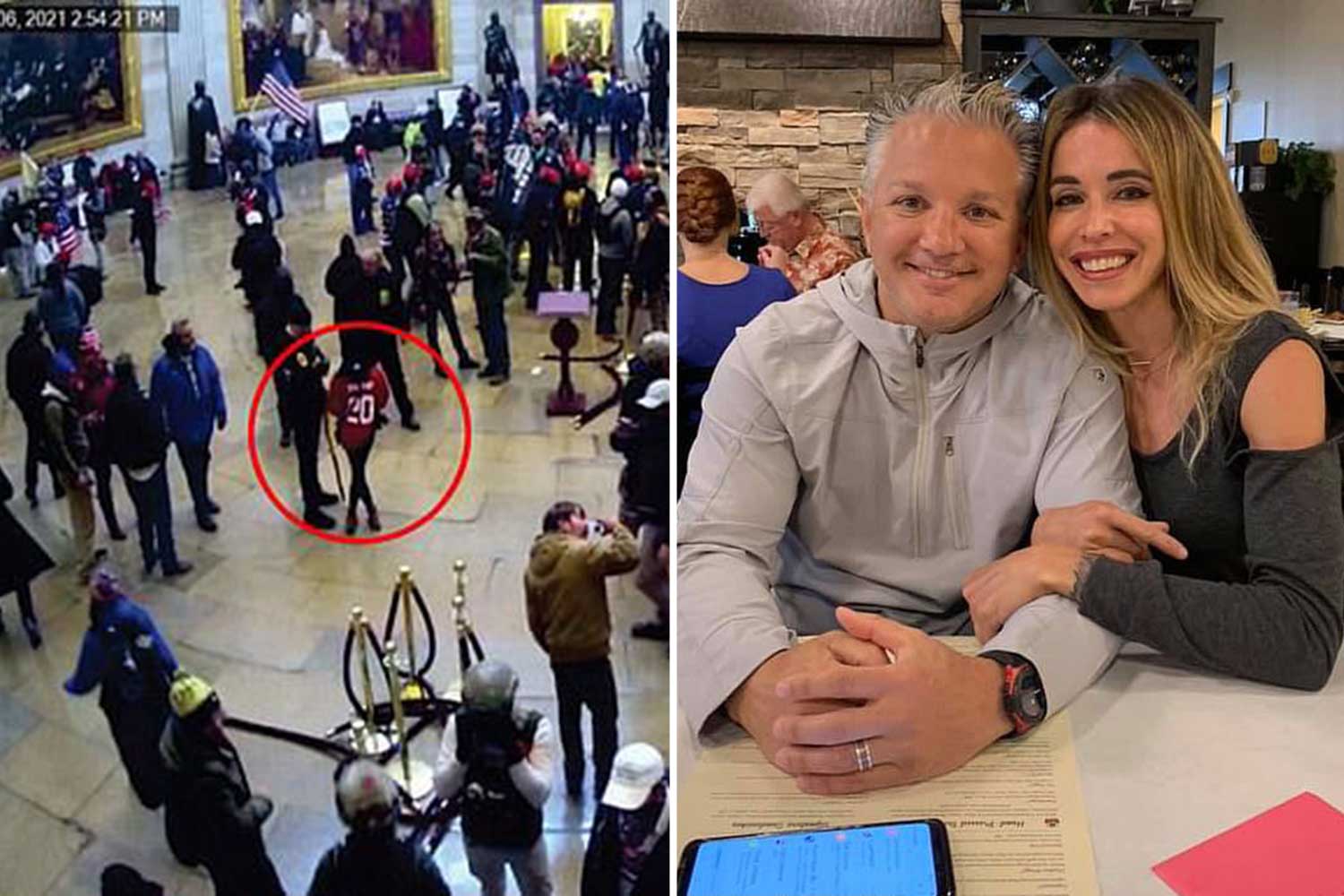Ex-Councillor's Wife Fights Racial Hatred Tweet Conviction

Table of Contents
The Controversial Tweet and its Fallout
The incident began with a tweet posted by Anya Sharma on the social media platform Twitter. While the exact wording is subject to legal proceedings and therefore omitted to avoid potential libel, the tweet contained racial slurs and derogatory comments targeting a specific ethnic group. The tweet was posted in response to a controversial news story about immigration policy.
The public reaction was swift and intense. The tweet went viral, attracting widespread condemnation across various media outlets and social media platforms. News channels ran segments on the incident, generating significant public debate. Social media users expressed their outrage, using hashtags such as #RacistTweet and #OnlineHate to amplify their condemnation. The immediate fallout for Anya Sharma included a significant backlash from the public, calls for her resignation (although she held no public office), and damage to her and her husband's reputation.
- Timing: The tweet was posted on the evening of [Date], shortly after the news story broke.
- Offensive Language: The tweet included a series of racial slurs and deeply offensive generalizations about a particular ethnic community.
- Platform: Twitter was the platform used to disseminate the hateful message.
- Initial Reactions: Immediate reactions included outrage from various community groups, condemnation from political figures, and calls for a formal investigation and prosecution.
The Legal Proceedings and Arguments
Anya Sharma was subsequently charged under [Name of specific legislation, e.g., Section X of the Online Hate Speech Act] for inciting racial hatred and online harassment. The prosecution argued that the tweet was clearly intended to incite hatred and discrimination based on race and ethnicity. They presented evidence including screenshots of the tweet, witness testimonies from individuals who felt targeted by the message, and expert analysis of the language used.
The defense argued that the tweet was a misinterpretation, taken out of context, and that Sharma did not intend to incite hatred. They asserted that it was an expression of opinion protected under freedom of speech laws. They questioned the interpretation of the words used and argued the prosecution was overreaching.
- Laws Violated: The charges were based on specific sections of legislation designed to combat online hate speech and harassment.
- Defense Strategy: The defense focused on freedom of speech, the lack of malicious intent, and the potential for misinterpretation.
- Key Witnesses: Witnesses included individuals who reported feeling targeted by the tweet and social media experts who analyzed the language used.
- Verdict: The initial verdict found Anya Sharma guilty of inciting racial hatred. She is currently appealing the conviction.
Implications for Online Hate Speech Laws
The Anya Sharma case has far-reaching implications for online hate speech legislation. The verdict raises important questions about the effectiveness of current laws in tackling online racism and the challenges of balancing freedom of speech with the need to protect individuals from hate speech. The case may lead to calls for amending existing legislation to better address the nuances of online communication.
- Potential Changes to Legislation: The case has sparked discussions about strengthening hate speech laws to explicitly address online platforms and the rapid dissemination of hateful content.
- Role of Social Media Platforms: The case puts pressure on social media companies to implement more robust content moderation policies and take a more proactive role in removing hate speech.
- Impact on Public Discourse: The case is shaping public discourse around online racism, highlighting the need for increased awareness and education about responsible online communication.
- Calls for Increased Awareness: The trial highlights the need for widespread education and awareness programs focusing on online hate speech and its real-world consequences.
The Role of Social Media in Amplifying Hate Speech
Social media platforms, with their vast reach and algorithms that can amplify controversial content, play a significant role in the spread of hate speech. The rapid dissemination of hateful messages across social media makes it difficult to control and necessitates a more comprehensive approach to content moderation. The algorithms used by social media platforms often prioritize engagement, which can inadvertently promote the virality of hateful posts.
Freedom of Speech vs. Hate Speech: A Delicate Balance
Balancing freedom of speech with the need to protect individuals from hate speech is a complex and ongoing challenge. This case highlights the difficulty in defining the line between expressing an unpopular opinion and inciting hatred. The legal precedent set by this case will significantly impact future legal challenges and legislative discussions regarding online hate speech and freedom of expression. International standards on freedom of expression generally recognize limitations on speech that incite violence or discrimination.
Conclusion
The case of Anya Sharma highlights the ongoing struggle to define and prosecute online hate speech. The conviction, and subsequent appeal, underscore the complex legal and social issues surrounding freedom of expression and the fight against racial hatred. The outcome will have significant implications for future cases and for the ongoing debate on regulating online hate speech. This case emphasizes the urgent need for clearer legal frameworks and effective strategies to combat the spread of online racism.
Call to Action: Stay informed about the ongoing developments in this important legal battle against racial hatred. Follow the updates on Anya Sharma's appeal and contribute to the conversation about combating online hate speech. Understanding this case is crucial for promoting a more inclusive and respectful online environment.

Featured Posts
-
 G 7 Finance Ministers Prioritize Consensus Despite Us Trade Turmoil
May 22, 2025
G 7 Finance Ministers Prioritize Consensus Despite Us Trade Turmoil
May 22, 2025 -
 Otter Population Management In Wyoming Reaching A Turning Point
May 22, 2025
Otter Population Management In Wyoming Reaching A Turning Point
May 22, 2025 -
 Loto Du Patrimoine 2025 Visite En Images Du Theatre Tivoli A Clisson
May 22, 2025
Loto Du Patrimoine 2025 Visite En Images Du Theatre Tivoli A Clisson
May 22, 2025 -
 Britons Epic Australian Run Pain Pests And A Cheating Scandal
May 22, 2025
Britons Epic Australian Run Pain Pests And A Cheating Scandal
May 22, 2025 -
 Uw Gids Voor Tikkie Eenvoudig En Snel Geld Versturen In Nederland
May 22, 2025
Uw Gids Voor Tikkie Eenvoudig En Snel Geld Versturen In Nederland
May 22, 2025
